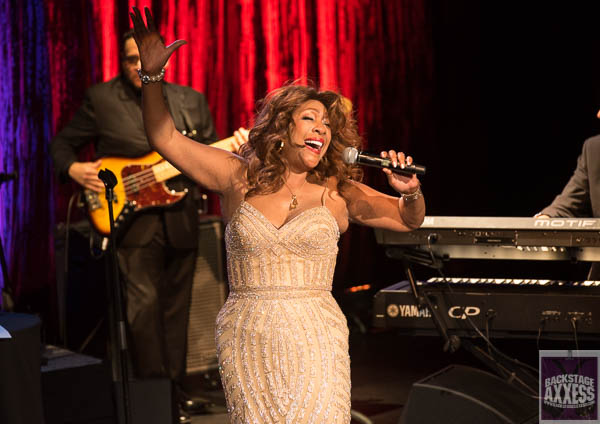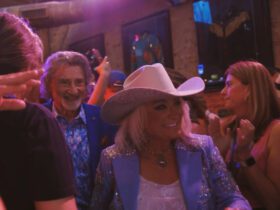As per the NY Times:
Mary Wilson, a founding member of the Supremes, the trailblazing group from the 1960s that spun up a dozen No. 1 singles on the musical charts and was key to Motown’s legendary sound, died on Monday at her home in Henderson, Nev. She was 76.
Ms. Wilson’s death was confirmed by her publicist, Jay Schwartz. No cause of death was given.
Formed in Detroit as the Primettes in 1959, the Supremes originally included Florence Ballard and Diana Ross, and released a string of hits in the early 1960s like “Baby Love” and “Stop! In the Name of Love.”
Berry Gordy, the founder of Motown, said in a statement that the Supremes had opened doors for other Motown acts. “I was always proud of Mary,” Mr. Gordy said. “She was quite a star in her own right, and over the years continued to work hard to boost the legacy of the Supremes.”
Ms. Wilson, who grew up in the Brewster-Douglass Projects in Detroit, had been a singer in her childhood. Milton Jenkins, who in 1959 was the manager of the Primes, a male singing group, moved to form a female version of the act. Betty McGlown was first to join, then came Ms. Ballard, who invited Ms. Wilson, and Ms. Ross was the fourth. To get Mr. Gordy’s attention, they frequented the Hitsville USA recording studio after school — and they were eventually signed by the record executive. The group later changed its name from the Primettes to the Supremes and became a trio in 1962.
Although the Supremes faced difficulties in reaching success early stages in their careers, their song “When the Lovelight Starts Shining Through His Eyes” peaked at No. 23 on the Billboard pop chart in 1963. Then came five consecutive No. 1 singles: “Where Did Our Love Go,” “Baby Love,” “Come See About Me,” “Stop! In the Name of Love” and “Back in My Arms Again.”
“They were extraordinarily popular with white audiences, Black audiences and everyone else,” said Dolores Barclay, an author and adjunct professor at the Columbia University Graduate School of Journalism, who collaborated with Ms. Ross on the singer’s memoir.
“Appearing in white venues was breaking down racial barriers,” she said. “But it’s a different type of disruption. It’s nonconfrontational. It’s having a platform and saying, ‘Yes, we’re here, we’re great and we’re a part of American music.’”
The Supremes “transcend adolescence without repudiating it,” an article in The New York Times read in 1967, adding, “Their audience spans ages and taste barriers.”
But as Ms. Wilson wrote in her 1986 autobiography, “Dreamgirl: My Life as a Supreme,” sometimes casting a negative light on Ms. Ross, there was friction in the group.
“Diane always liked to be the center of attraction,” Ms. Wilson told People magazine in 1986. “If you happened to be in her way while she was going toward the center, that was your fault.”
The strains in their relationship appeared in public again in 2000, when Ms. Wilson and Ms. Birdsong did not join a Supremes reunion tour, saying they were offered much less than Ms. Ross. “My biggest desire and dream is that Diane and I are together again,” Ms. Wilson said on CBS that year. “First of all, it’s a friendship thing for me.”
Ms. Ross said on Twitter on Tuesday that she had many “wonderful” memories with Ms. Wilson. “The Supremes will live on in our hearts,” she said.
Ms. Wilson remained in the spotlight in recent years, competing on “Dancing With the Stars” in 2019 and releasing a fourth book, “Supreme Glamour,” a collection of the Supremes’ most dazzling gowns. “Our glamour changed things,” she said at the time. “What we wore mattered.”
The influence the Supremes had on Black girls and women across America in the 1960s was undeniable. “You never saw anything like it in the 1960s — three women of color who were totally empowered, creative, imaginative,” Oprah Winfrey was quoted as saying in “Diana Ross: A Biography,” by J. Randy Taraborrelli. As a 10-year-old Black girl, she said, “to see the Supremes and know that it was possible to be like them, that Black people could do THAT … ”
And the Supremes have influenced countless musical acts and girl groups like Destiny’s Child, En Vogue and SWV, many of them borrowing from their playbook and producing pop stars in their own right.
“We, the Supremes, can’t take all the credit,” Ms. Wilson told The Guardian in 2019. “The writers and producers at Motown gave us the music and sound that people loved. And then there was the glamour. My whole life is like a dream. I tell you — if I were not a Supreme, I would want to be a Supreme.”
Ms. Wilson is survived her daughter, Turkessa; her sons Pedro Antonio Jr. and William; her sister, Kathryn; her brother, Roosevelt; and 10 grandchildren and one great-grandchild.






